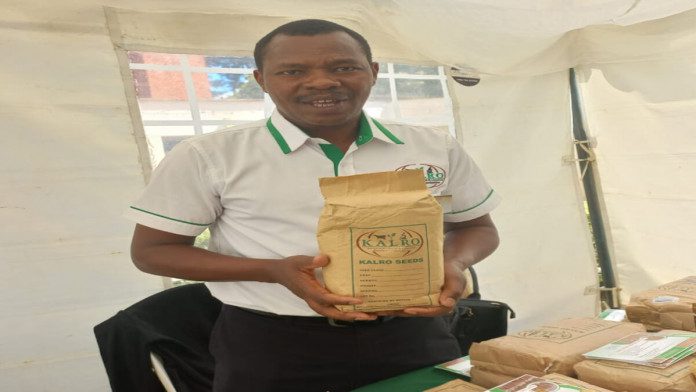News in Brief:
– Kenyan farmers can now access new maize varieties resistant to the fall armyworm, a destructive pest that has caused significant yield losses in recent years.
– This development is the result of collaboration between Kenyan and international research institutions and offers hope for increased agricultural productivity and resilience to climate challenges.
Kenyan farmers can finally access new maize varieties resistant to the destructive fall armyworm, a pest that has caused significant yield losses in recent years.
According to a report by a local news outfit, this development comes after over six years of battling the pest, with some farmers experiencing complete crop devastation.
The new seeds are named FAWTH2001, FAWTH2002, and FAWTH2003. They were developed by the Kenya Agriculture and Livestock Research Organisation (KALRO) to combat the spread of the fall armyworm.
Their release follows approval by the National Varieties Release Committee in February 2023. However, while the seeds are now available, farmers won’t be able to plant them until the short rains season due to the time required for seed production by commercial companies.

The fall armyworm is a highly mobile agricultural pest that can consume a variety of crops, including maize. In 2017, entire crops were wiped out by the pest, leading to food shortages. Estimates suggest armyworms cause annual maize losses of around one million tonnes in Kenya.
Meantime, Dr. Eliud Kireger, Director General of KALRO, highlighted the potential of the new varieties to improve agricultural productivity. He anticipates increased yields, as farmers adopt these resistant seeds and expand their cultivated areas.
The International Maize and Wheat Improvement Center (CIMMYT) also played a key role in this development. They provided financial support for agricultural infrastructure, including seed storage facilities and irrigation systems.
Specifically, CIMMYT Director, Dr. Prassana Boddupalli, noted the combined efforts of local and international research organisations in creating the new maize varieties. They were developed using germplasm from Mexico and Cuba and have undergone rigorous testing by Kenyan authorities.
Also, Boddupalli pointed out the importance of these climate-resilient seeds in mitigating the effects of drought.



